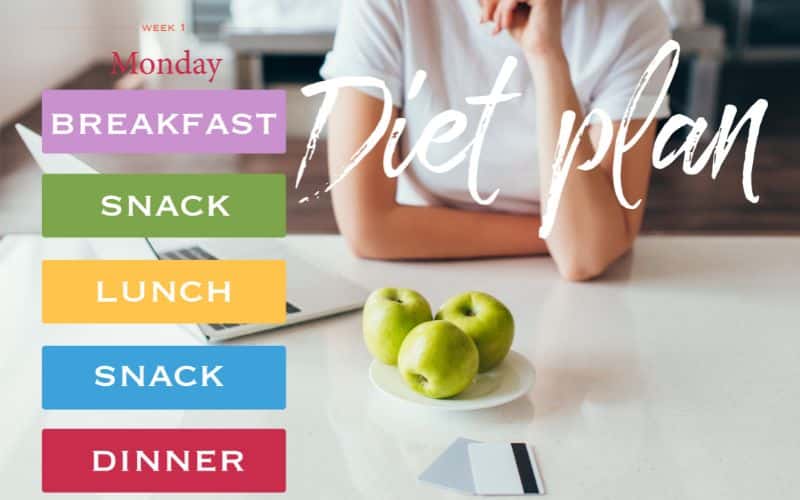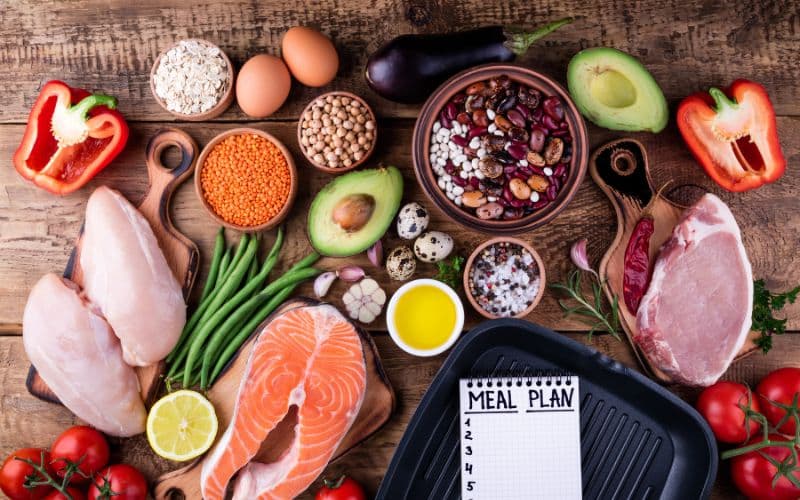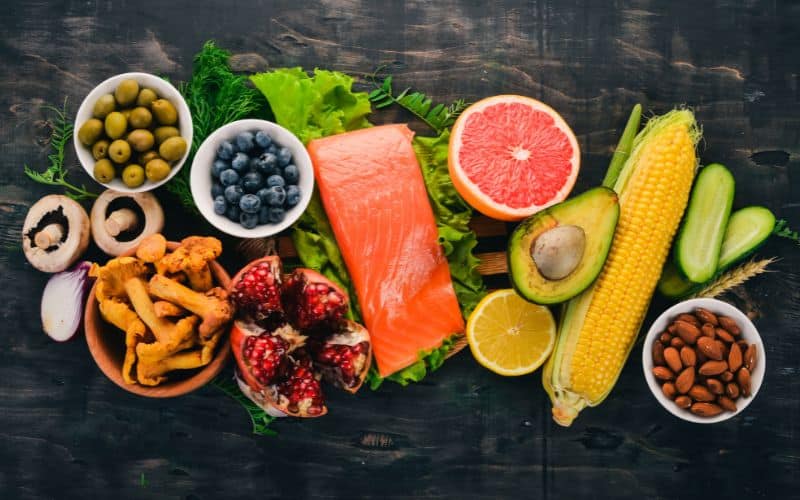Maintaining a healthy weight is essential for overall well-being, and for many women, dieting is a common approach to reach their desired weight. However, dieting can be a challenging task, especially for women who face unique challenges such as hormonal changes, social pressures, and busy lifestyles. In this article, we will explore some effective tips on how to diet as a lady and achieve your weight loss goals.
The first step to successful dieting is to set realistic goals. Instead of aiming for drastic weight loss, focus on making small, sustainable changes to your eating habits and lifestyle. This can include reducing your portion sizes, cutting back on sugary and processed foods, and increasing your physical activity levels. By setting achievable goals, you can avoid feeling overwhelmed and discouraged, and instead, stay motivated and committed to your weight loss journey.
Another important aspect of dieting as a lady is to prioritize your health and well-being over societal pressures and beauty standards. It's essential to recognize that every woman's body is unique, and there is no one-size-fits-all approach to dieting. Therefore, it's crucial to listen to your body's needs, eat a balanced and nutritious diet, and avoid crash diets or extreme weight loss methods that can harm your health. By focusing on your health and well-being, you can achieve sustainable weight loss and maintain a healthy weight in the long run.
Contents
Understanding the Female Body

When it comes to dieting, it's important to understand the unique needs of the female body. Women have different nutritional requirements than men, and these needs can change over the course of their lives.
Hormonal Changes
One of the biggest factors that affects women's nutritional needs is hormonal changes. Hormones such as estrogen and progesterone can impact appetite, metabolism, and energy levels. For example, during the menstrual cycle, many women experience cravings for sweet or salty foods. This is due to changes in hormone levels, particularly estrogen and serotonin.
Metabolism
Women also tend to have slower metabolisms than men, meaning they burn fewer calories at rest. This can make it more difficult to lose weight or maintain a healthy weight. However, there are ways to boost metabolism through exercise and building lean muscle mass.
Nutrient Requirements
Women have different nutrient requirements than men, particularly when it comes to iron and calcium. Iron is important for producing hemoglobin, which carries oxygen in the blood. Women need more iron than men due to menstrual blood loss. Calcium is important for building and maintaining strong bones, and women are at a higher risk for osteoporosis than men.
Pregnancy and Breastfeeding
During pregnancy and breastfeeding, women have even greater nutrient needs. They require more protein, iron, and calcium to support the growth and development of the baby. It's important for pregnant and breastfeeding women to eat a well-balanced diet and take prenatal vitamins to ensure they are getting all the nutrients they need.
By understanding the unique needs of the female body, women can make informed choices about their diet and nutrition. By eating a well-balanced diet that meets their individual needs, women can support their overall health and well-being.
Importance of Balanced Diet
Eating a balanced diet is essential for maintaining good health. A balanced diet provides your body with the right amount of essential nutrients, vitamins, and minerals needed to function optimally. As a lady, it is important to eat a balanced diet to keep your body healthy and strong.
A balanced diet should include a variety of foods from all the major food groups, including fruits, vegetables, whole grains, lean proteins, and healthy fats. Each food group provides your body with different nutrients that are essential for your overall health.
Fruits and vegetables are rich in vitamins, minerals, and fiber, which are important for maintaining a healthy weight, reducing the risk of chronic diseases, and promoting good digestive health. Whole grains are a good source of fiber, which helps keep you feeling full and satisfied, and also helps regulate blood sugar levels.
Lean proteins such as chicken, fish, and beans are important for building and repairing tissues in your body, and also help keep you feeling full and satisfied. Healthy fats such as those found in nuts, seeds, and avocados are important for brain function, heart health, and reducing inflammation in the body.
Eating a balanced diet can also help prevent or manage many health problems that affect women, such as heart disease, diabetes, and osteoporosis. Studies show that when a woman eats healthy, everyone in her household is more likely to eat healthy as well.
In conclusion, a balanced diet is essential for maintaining good health as a lady. Eating a variety of foods from all the major food groups will provide your body with the right amount of essential nutrients, vitamins, and minerals needed to function optimally.
Creating a Personalized Diet Plan

When it comes to dieting, there is no one-size-fits-all approach. Every person's body is unique and requires different nutritional needs. Creating a personalized diet plan can help you achieve your weight loss goals while still nourishing your body with the nutrients it needs. Here are some steps to follow when creating a personalized diet plan.
Identifying Dietary Needs
The first step in creating a personalized diet plan is to identify your dietary needs. This includes determining your daily caloric intake, as well as the types of nutrients your body needs to function properly. To determine your daily caloric intake, you can use a calorie calculator like the one found on wikiHow. This will give you a general idea of how many calories you should be consuming each day based on your age, sex, weight, height, and activity level.
In addition to determining your daily caloric intake, you should also consider any dietary restrictions or preferences you have. For example, if you are a vegetarian, you will need to ensure that you are getting enough protein from non-animal sources. If you have a food allergy, you will need to avoid foods that contain that allergen.
Setting Realistic Goals
Once you have identified your dietary needs, the next step is to set realistic goals. This includes determining how much weight you want to lose and in what timeframe. It is important to set realistic goals that are achievable, as setting unrealistic goals can lead to frustration and disappointment.
When setting your weight loss goals, it is also important to consider your lifestyle. If you have a busy schedule, you may not have time to prepare elaborate meals every day. In this case, you may need to focus on quick and easy meal options that can be prepared in advance.
By identifying your dietary needs and setting realistic goals, you can create a personalized diet plan that works for you. Remember to be patient and consistent, as weight loss takes time and effort.
Essential Nutrients for Women
When it comes to dieting, women have unique nutritional needs that must be met to maintain good health. Essential nutrients for women include vitamins, minerals, protein, and healthy fats.
Vitamins and Minerals
Women need a variety of vitamins and minerals to support their overall health. Some of the most important vitamins and minerals for women include:
- Calcium: essential for strong bones and teeth. Good sources include dairy products, leafy greens, and fortified foods.
- Iron: important for healthy blood and energy levels. Good sources include red meat, poultry, fish, beans, and fortified cereals.
- Folate: necessary for healthy fetal development during pregnancy. Good sources include leafy greens, citrus fruits, and fortified cereals.
- Vitamin D: important for bone health and immune function. Good sources include fatty fish, egg yolks, and fortified foods.
- Magnesium: important for nerve and muscle function. Good sources include nuts, seeds, and leafy greens.
Protein
Protein is essential for building and repairing tissues in the body, as well as for maintaining a healthy immune system. Women should aim to include a variety of protein sources in their diet, such as:
- Lean meats: chicken, turkey, and fish
- Beans and legumes: lentils, chickpeas, and black beans
- Dairy products: milk, cheese, and yogurt
- Nuts and seeds: almonds, walnuts, and chia seeds
Healthy Fats
Healthy fats are an important part of a balanced diet for women. They can help improve heart health, boost brain function, and reduce inflammation in the body. Some healthy fat sources include:
- Avocado
- Fatty fish: salmon, tuna, and mackerel
- Nuts and seeds: almonds, pumpkin seeds, and flaxseeds
- Olive oil and other plant-based oils
By including a variety of nutrient-dense foods in their diet, women can ensure they are getting the essential nutrients they need for optimal health.
Meal Planning and Preparation

When it comes to dieting, meal planning and preparation can be a game-changer. Not only does it save time and reduce stress, but it also helps ensure that you're eating healthy, balanced meals.
Creating a Weekly Menu
One of the best ways to make sure you're eating healthy is to create a weekly menu. This not only helps you plan out your meals for the week, but it also helps you avoid unhealthy impulse purchases when you're at the grocery store.
To create a weekly menu, start by choosing the meals you want to eat for breakfast, lunch, and dinner. Aim to include a variety of foods from all food groups so that you get all the essential vitamins, minerals, and nutrients you need.
Once you have your meals planned out, make a grocery list of the ingredients you'll need. This will help you stay on track and avoid buying unnecessary items.
Prepping Meals in Advance
Prepping meals in advance can be a lifesaver when you're short on time. By prepping meals ahead of time, you can save time during the week and ensure that you always have healthy meals on hand.
To prep meals in advance, start by choosing a day of the week to do your meal prep. This could be on the weekend or a day off during the week.
Next, choose the meals you want to prep. This could be breakfast, lunch, dinner, or snacks. Once you have your meals planned out, start prepping. This could involve chopping vegetables, cooking grains, or marinating meats.
Finally, store your prepped meals in containers in the fridge or freezer. This will make it easy to grab a healthy meal when you're short on time.
Overall, meal planning and preparation can be a great way to stay on track with your diet and ensure that you're eating healthy, balanced meals. By creating a weekly menu and prepping meals in advance, you can save time and reduce stress while staying on track with your health goals.
Incorporating Exercise into Your Routine
Exercise is an essential component of a healthy lifestyle, and it can help you achieve your weight loss goals. The Centers for Disease Control and Prevention (CDC) recommends that adults get at least 150 minutes of moderate aerobic activity per week. Here are some tips for incorporating exercise into your daily routine:
- Start small: If you're new to exercise, start with a small goal, such as walking for 10 minutes a day. Gradually increase the duration and intensity of your workouts as you become more comfortable with exercise.
- Find an activity you enjoy: Exercise doesn't have to be boring or painful. Find an activity that you enjoy, such as dancing, swimming, or hiking. This will make it easier to stick to your exercise routine.
- Make it a habit: Schedule your workouts at the same time every day, so they become part of your daily routine. This will make it easier to stick to your exercise plan.
- Mix it up: Doing the same workout every day can get boring, so mix it up. Try different types of exercise, such as strength training, yoga, or Pilates.
- Get a workout buddy: Exercising with a friend can make it more enjoyable and help keep you accountable. Plus, it's more fun to work out with someone else.
- Use technology: There are many apps and fitness trackers available that can help you track your workouts and progress. Use them to stay motivated and on track.
Remember, exercise is just one part of a healthy lifestyle. It's important to also focus on eating a balanced diet and getting enough sleep. By incorporating exercise into your daily routine, you can improve your overall health and well-being.
Maintaining a Healthy Lifestyle
Maintaining a healthy lifestyle is important for overall health and well-being. As a lady, it is essential to follow a balanced diet plan, exercise regularly, and get enough rest to stay healthy. In this section, we will discuss the importance of hydration and getting adequate sleep.
Importance of Hydration

Drinking enough water is essential for maintaining good health. Water helps to regulate body temperature, transport nutrients, and remove waste and toxins from the body. Drinking water can also help to prevent dehydration, which can lead to fatigue, headaches, and other health issues.
To ensure that you are getting enough water, aim to drink at least eight glasses of water per day. You can also increase your water intake by eating foods with high water content, such as fruits and vegetables. Some examples include watermelon, cucumbers, and strawberries.
Getting Adequate Sleep
Getting enough sleep is essential for maintaining good health. Sleep helps to restore the body and mind, and it plays a crucial role in maintaining a healthy immune system. Lack of sleep can lead to a range of health issues, including fatigue, weight gain, and an increased risk of chronic diseases.
To ensure that you are getting enough sleep, aim to get at least seven to eight hours of sleep per night. You can also improve the quality of your sleep by creating a relaxing sleep environment, avoiding caffeine and alcohol before bedtime, and sticking to a regular sleep schedule.
In conclusion, maintaining a healthy lifestyle is crucial for overall health and well-being. By staying hydrated and getting enough sleep, you can ensure that your body is functioning optimally. Remember to make healthy choices every day and prioritize self-care to stay healthy and happy.
Understanding and Overcoming Challenges
Dieting can be challenging, especially for women. However, understanding and overcoming these challenges can help you achieve your weight loss goals. Here are some common challenges that women face when dieting and how to overcome them.
Dealing with Cravings
Cravings can be a significant challenge when dieting. However, it's essential to understand that cravings are often triggered by emotional or psychological factors, rather than hunger. Here are some tips to help you deal with cravings:
- Drink water: Sometimes, thirst can be mistaken for hunger. Drinking water can help you feel fuller and reduce cravings.
- Distract yourself: When you feel a craving coming on, try to distract yourself by doing something else, such as going for a walk, reading a book, or calling a friend.
- Plan ahead: If you know you're going to have a craving, plan ahead by having healthy snacks on hand, such as fruits, vegetables, or nuts.
Handling Social Events
Social events can be challenging when you're trying to stick to a diet. However, with a little planning, you can still enjoy yourself while staying on track. Here are some tips to help you handle social events:
- Plan ahead: If you know you're going to a social event, plan ahead by eating a healthy meal beforehand. This can help you avoid overeating or making unhealthy food choices.
- Be mindful: When you're at a social event, be mindful of what you're eating. Take your time and savor each bite. This can help you feel more satisfied and reduce the likelihood of overeating.
- Bring your own food: If you're unsure if there will be healthy options available, consider bringing your own food. This can help you stay on track and avoid making unhealthy choices.
By understanding and overcoming these challenges, you can achieve your weight loss goals and lead a healthier life.
Conclusion
In conclusion, dieting as a lady can be challenging, but it is not impossible. By following a healthy diet plan and exercising regularly, women can achieve their desired body weight and shape. It is essential to choose a diet plan that is sustainable and provides all the necessary nutrients for optimal health.
Women should also be mindful of their portion sizes and avoid skipping meals, as this can lead to overeating and unhealthy snacking. Incorporating high-fiber foods, such as fruits, vegetables, and whole grains, can help women feel fuller for longer and aid in weight loss.
Moreover, women should aim to drink plenty of water throughout the day to stay hydrated and avoid sugary drinks. Additionally, women should limit their intake of processed and high-fat foods, as these can contribute to weight gain and other health problems.
Finally, it is crucial to consult a healthcare professional before starting any new diet or exercise program, especially if you have any underlying health conditions. By following these tips and seeking professional guidance, women can achieve a healthy and sustainable diet plan that works for them.
Frequently Asked Questions
What are some healthy foods to include in a balanced diet?

A balanced diet for women should include plenty of fruits, vegetables, whole grains, lean protein, and healthy fats. Some examples of healthy foods to include in your diet are:
- Leafy greens like spinach, kale, and arugula
- Berries like blueberries, strawberries, and raspberries
- Whole grains like quinoa, brown rice, and whole wheat bread
- Lean protein sources like chicken, fish, and tofu
- Healthy fats like avocado, nuts, and olive oil
How can I create a meal plan that supports weight loss?
Creating a meal plan can be a helpful tool in supporting weight loss. Start by calculating your daily calorie needs and then plan meals that meet those needs while also being nutrient-dense. Include plenty of fruits and vegetables, lean protein, and whole grains. Consider using a meal planning app or consulting with a registered dietitian for personalized guidance.
What are some effective exercises for losing weight?
Incorporating a mix of cardiovascular exercise and strength training can be effective for weight loss. Some examples of cardiovascular exercise include running, cycling, and swimming. Strength training exercises like weight lifting, bodyweight exercises, and resistance band workouts can help build muscle and boost metabolism.
What are some tips for staying motivated while dieting?
Staying motivated can be challenging, but there are a few tips that can help. Set realistic goals, track your progress, and celebrate your successes along the way. Find a workout buddy or join a support group for accountability and encouragement. Finally, focus on the positive changes you are making to your health rather than solely on the number on the scale.
How can I avoid overeating or snacking between meals?
Planning ahead and keeping healthy snacks on hand can help avoid overeating or snacking between meals. Focus on nutrient-dense snacks like fruits, vegetables, and nuts. Drinking plenty of water can also help curb hunger and prevent overeating.
What should I do if I hit a weight loss plateau?
Hitting a weight loss plateau can be frustrating, but there are a few things you can try. Consider increasing the intensity or duration of your workouts, adjusting your calorie intake, or trying a new type of exercise. It can also be helpful to consult with a registered dietitian for personalized guidance. Remember that weight loss is not always linear and that progress takes time.






